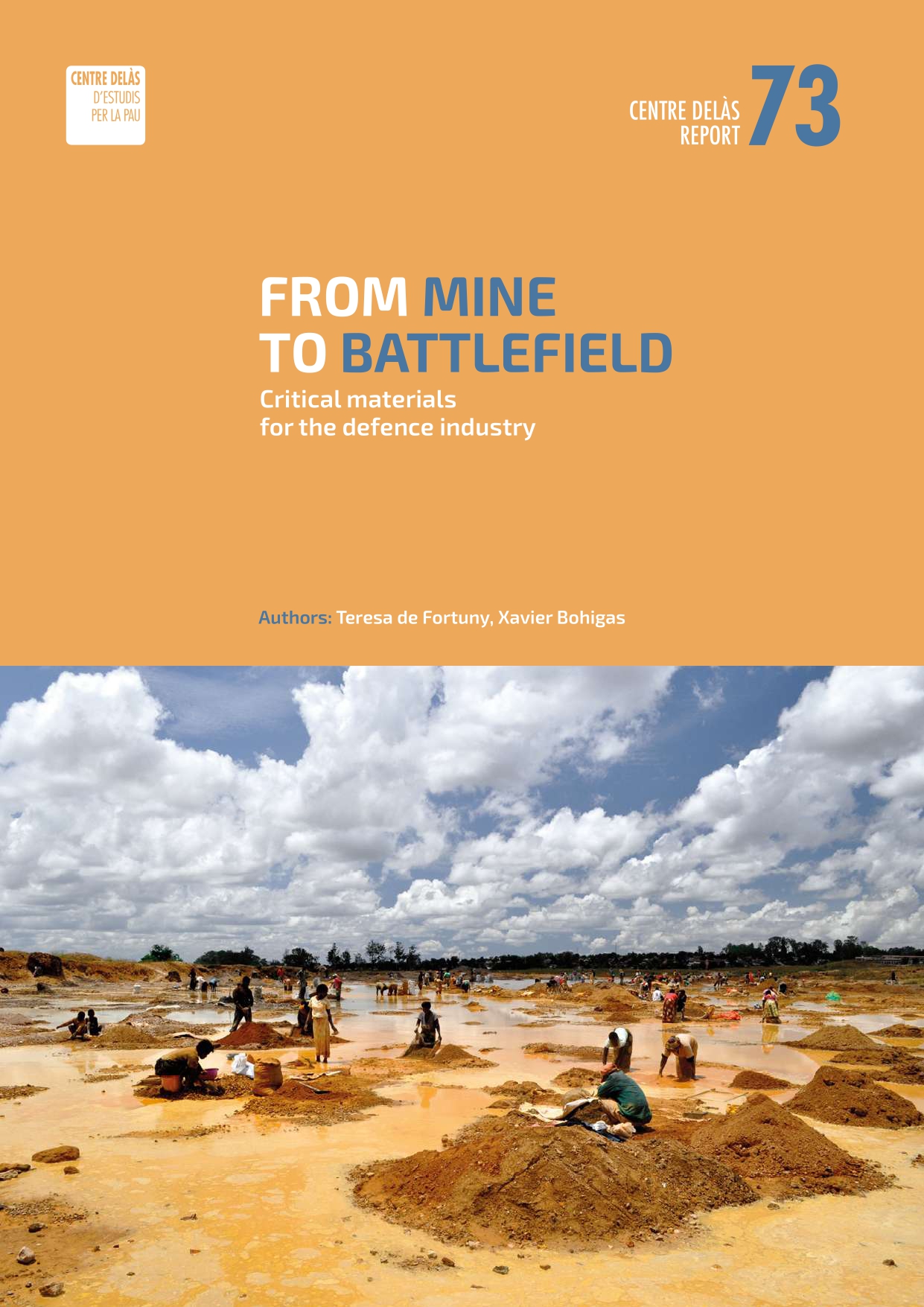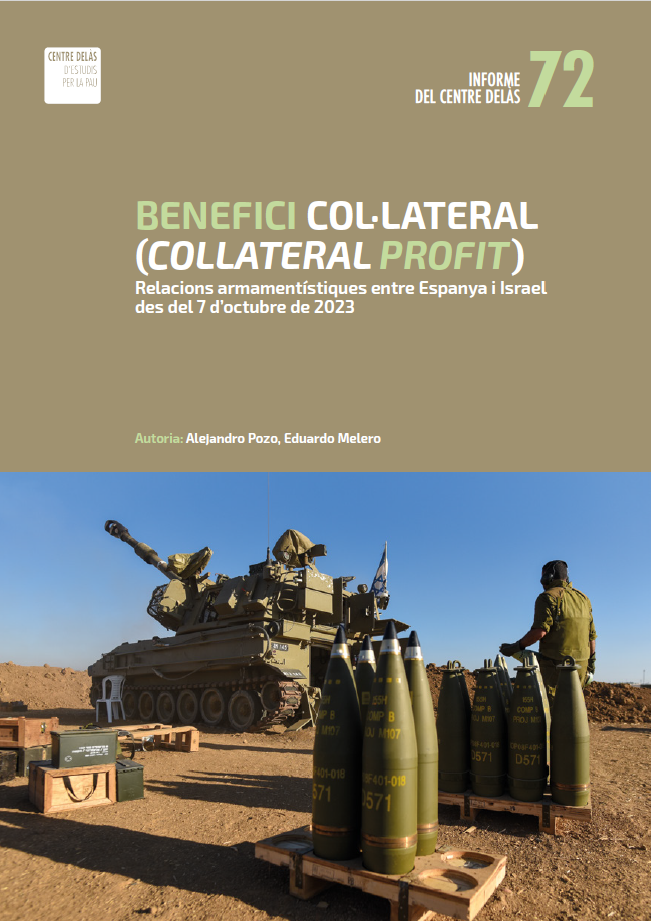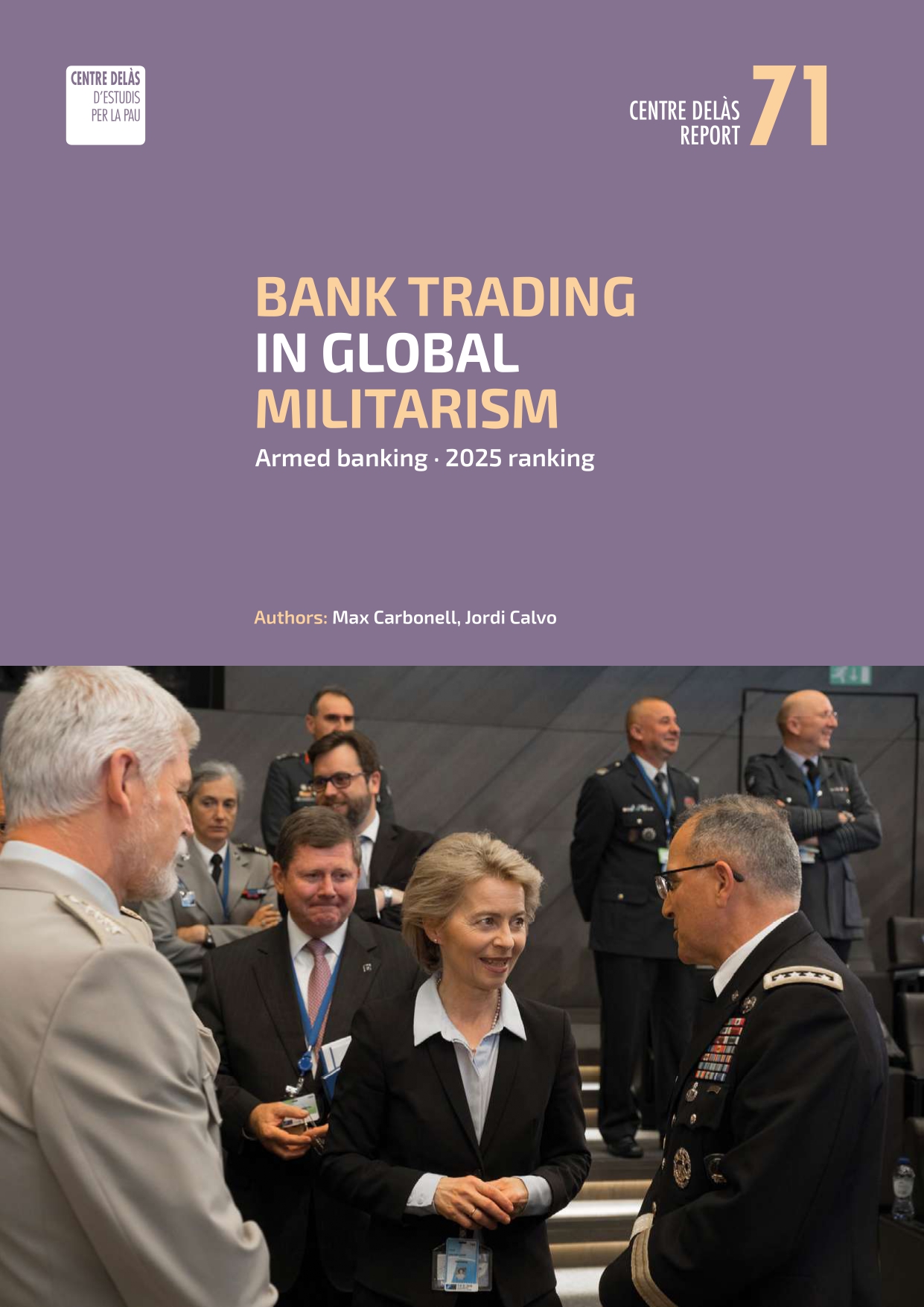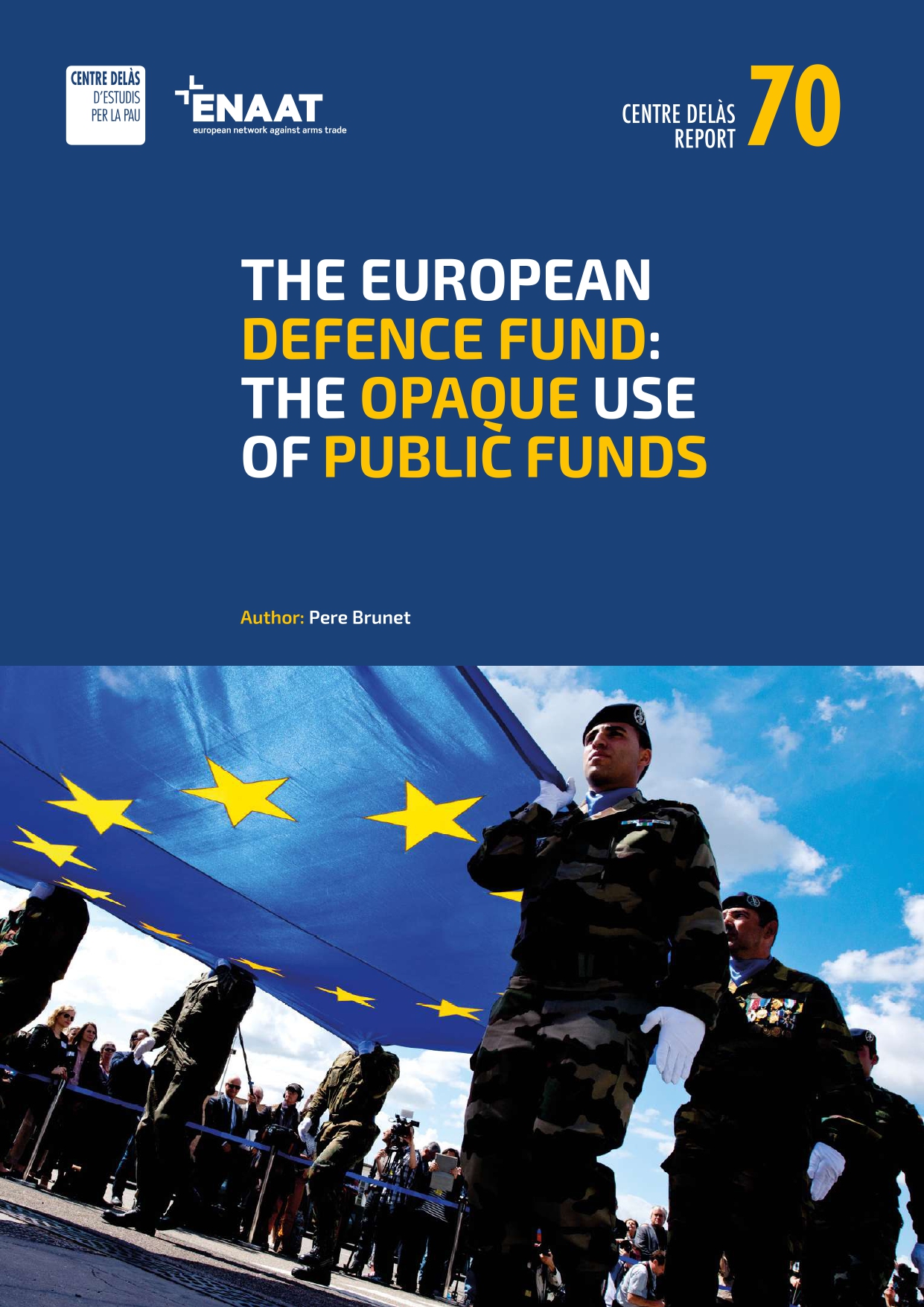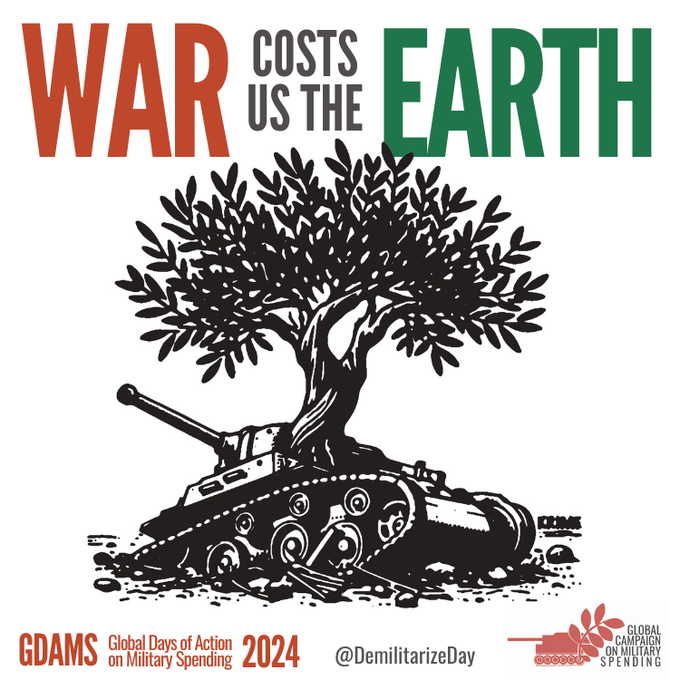The Delàs Centre and the International Peace Bureau are demanding an urgent reorientation of military spending towards health investment and the cancellation of new arms purchases in order to allocate 13 billion euros to tackle the COVID-19 crisis.
- Global military spending reached $1.92 trillion by 2019, a figure that is increasing for the fourth year in a row and shows the largest increase in the last decade.
- In the case of Spain, the Centre Delàs d’Estudis per la Pau estimates that there will be 20,050 million euros of military spending in 2019, the equivalent of 55 million per day.
- Since 1997, Spain has spent more than 42,000 million euros on new weapons alone. With the budget dedicated to the Eurofighter EF-2000 and A-400M planes, 25 hospitals and 27,720 hospital beds could be maintained for one year.
The Stockholm International Peace Research Institute (SIPRI) released today, April 27, new data on global military spending for 2019, a figure that grows for the fourth consecutive year to reach $1.92 trillion, $95 billion more than the previous year. This increase went from 2.6% to 3.6% in real terms, representing the biggest increase in recent years. Militarisation is therefore accelerating at an alarming rate at a time of serious health, social and climate emergencies.
Within the framework of the Global Day of Action on Military Spending (GDAMS), the renowned international peace organization, International Peace Bureau (IPB), together with the Centre Delàs d’Estudis por la Pau -which hosts the IPB office in Barcelona-, have organized a press conference to assess the new data on military spending and to ask for a reorientation of Spain’s military spending to provide resources and means to address the current crisis caused by the Covid-19.
This growth in military budgets and the sustained increase in arms transfers give impetus to an already strong arms race that only a few people benefit from. It shows us how effective pressure from military organisations such as NATO (whose member states account for 1.03 trillion dollars, 54% of world military spending) has been in demanding sharp increases in military budgets. The fruit of these pressures is visible especially in countries with a strong military industry (in Europe, North America, Asia and Oceania). It should also be noticed that the 5 countries spending the most (USA, China, India, Russia and Saudi Arabia) accumulate almost two thirds of the world’s military expenditure. The Middle East could be showing signs of exhaustion in its dedication to military spending as a result of almost two decades of consecutive armed conflicts, which proves how militarisation is exclusively producing new threats, tensions and insecurity for the region’s and the world’s population.
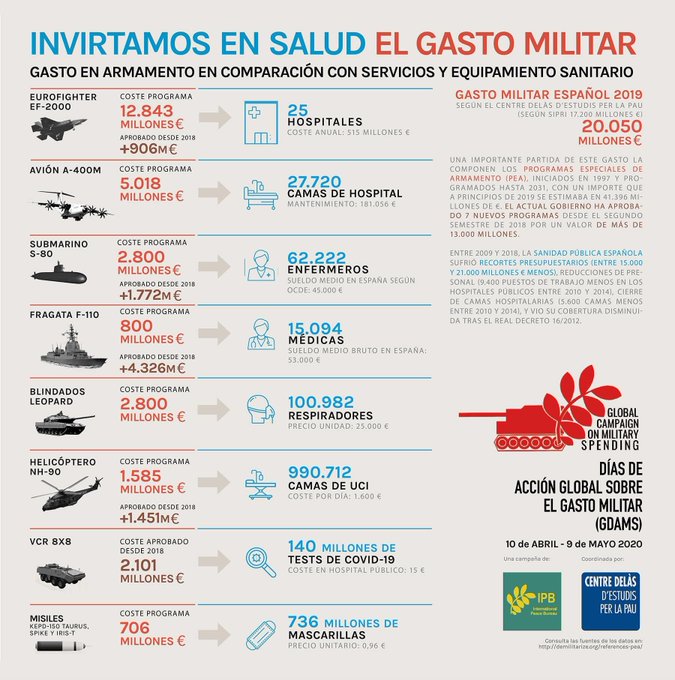
Spain, with military spending of 17.2 billion euros in 2019 according to SIPRI data, drops one position in the ranking to 17th place, despite experiencing 0.9% growth over the previous year. “According to the calculations of the Delàs Centre – which include items included in the budgets of other ministries – the figure is even higher and reaches 20,050 million euros, the equivalent of 55 million euros per day. Imagine if we had invested this amount to strengthen public health“, warned Pere Ortega, president of the Delàs Centre and expert in military spending. In this analysis, the 7 Special Armament Programmes (SAP) that the Socialist government has approved since the second half of 2018, which exceed 13 billion euros and which include a new spending ceiling for the programmes of the Eurofighter combat aircraft, the S-80 submarine and for the acquisition of 5 F-110 frigates, 348 wheeled combat vehicles (VCRs) and 23 NH-90 helicopters, deserve special attention. These items for new purchases and for upgrades of previously acquired but obsolete models bring the total cost of SAPs to over EUR 42 billion since they started in 1997. The infographic prepared by the Centre Delàs establishes a comparison with the costs of health personnel and equipment necessary to face the emergency of the COVID-19, calculating, for example, that with the money dedicated to the Eurofighter and A-400M planes, 25 hospitals and 27,720 beds could be maintained for one year. Taking into account that the Spanish health system suffered cuts estimated between 15 and 21 billion between 2009 and 2018, the Centre Delàs and the IPB campaign are calling for the cancellation of the special armament programmes approved by the current executive and all those still to be paid for and executed.
The Delàs Centre also wanted, within the context of the campaign, to focus on the current militarised response to the ongoing health crisis in Spain and the opportunity cost that this involves. “IFEMA could have been managed with civilian corps, whether it is the EMU or the army seems a waste of resources. To fight a virus we don’t need armed people, we need a robust health systems“, pointed out Mar Gimena, a doctor from the Madrid Health Service and a volunteer at the IFEMA field hospital, at a press conference.On the other hand, Ina Robles, a firefighter and activist from Greenpeace Spain who was sentenced for refusing to supervise an arms shipment in the port of Bilbao, added: “The work being carried out by the army during this pandemic is not military work; it could be done with civilian personnel in a more efficient way. The right people to do these tasks and the companies that have the required resources are at home“.
“The figures for 2019 show a solid growth in world military spending that poses significant risks to global peace and security, and at the same time represents a great misuse of public resources that are fundamental to deal with the coronavirus crisis,” said Jordi Calvo, vice-president of the IPB and coordinator of the Centre Delàs. “It is time to undertake drastic reductions in military spending to fund policies that confront the real global threats to our security“.
This press conference is one of the 8 organized on April 27 in the framework of the GDAMS, together with Seoul, Berlin, Rome, Washington D.C., Buenos Aires, Rosario and Montevideo. This year, the campaign wants to emphasize the need to redirect military spending to sectors that provide human security, especially health.

